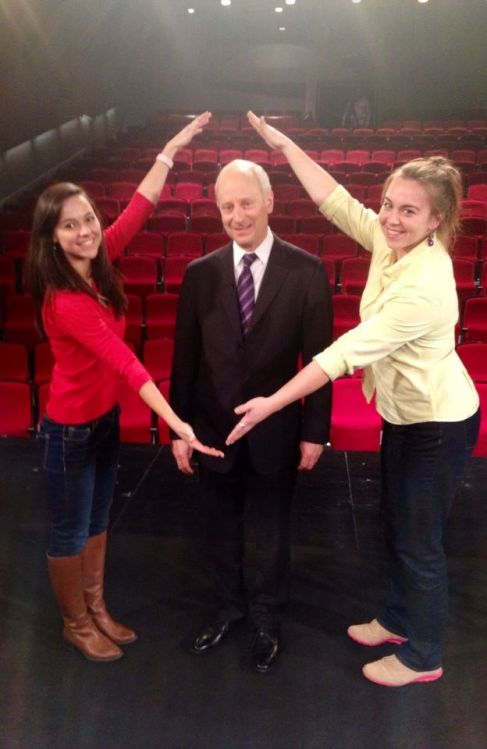This past weekend, February 22 through 24, I had the honor of participating in a series of six, two hour long seminars conducted through the Institute for New Economic Thinking (http://ineteconomics.org/). Professor Michael Sandel organized and led the weekend’s sessions. Professor Sandel is one of today’s preeminent political philosophers, and a professor at Harvard University where he teaches the wildly popular course entitled Justice (http://www.justiceharvard.org/). I submitted my application for this opportunity over the winter break and promptly put it behind me as I knew there would be many more applicants (about 500) than spaces for students (12). When I heard from the Institute in February, I was shocked and thrilled to learn that I had been selected by the Institute and Prof. Sandel to participate.
Going into the first day of the seminar I had no idea what to expect from the experience, other than that it would be filmed and cut into one hour segments for a series on PBS. Meeting the other participants the first morning before beginning filming I soon learned that my colleagues happened to be from everywhere. One participant flew over from Kings College in London, another came from Western Ontario, and another two were from Bulgaria and Syria, though they attend school in the United States. On top of that, schools like Harvard, Princeton, Brown, and Smith (and Swarthmore!) were represented. The group held and expressed ideas from every angle one could imagine.
The first day on the set where the seminars were being recorded was quite restrained. I believe that the twelve of us were trying to decide how far we could push each other without crossing a line. The fact that we all got along so well while having such different views on economics and capital markets helped us to move more quickly to question one another’s assertions and arguments because there were no hard feelings as soon as the cameras stopped rolling. And, even when the cameras were still rolling, there were very few instances (possibly no instances) when someone’s zeal for their belief led them to be less than respectful.
The purpose of the series is to discuss the morality of certain market practices. Then, if there are moral problems with certain economic structures, business practices, government policies, or markets for goods, is it enough to warrant the regulation or even elimination of that practice, market, or structure. The methodology of the seminar was to move us out of our comfort zone and promote critical thinking on the topics for discussion. One of the topics we discussed was whether “lookism” (a hiring policy practiced by companies such as Abercrombie and Fitch, Lululemon, and PanAm in the fifties and sixties) is morally wrong, and if so should it be made illegal in the same way that prohibitions on racism, age discrimination, and sexism have been codified in U.S. law. Another topic that generated much discussion was what would be the moral implication of creating an international, tradable quota system for accepting refugees into countries.
For some reason, four hours of discussion a day was not enough. We ate most meals together for three days, and made the unspoken decision that no matter how hard we tried to give our minds a rest we would continue discussing some tougher subjects during meal times and after the twice daily seminars! I hope that the final product is able to convey the sense of respect and friendship that developed among the twelve of us as a result of these friendly and animated conversations.
The easiest friendship to make for me was with another Theta who was also in attendance. Laura Spring, a sophomore at Princeton and a student in the Woodrow Wilson School of Public and International Affairs was another of the five women in the group. Her enthusiasm and clarity in arguing her points were great parts of every conversation. It was a wonderful surprise and great honor to meet another of my sorority sisters from another college. Laura is another example of the high personal and intellectual standard to which most Thetas aspire to hold themselves.
Given the intensity of the weekend, even my trip back to Swarthmore from New York was spent thinking about the varying perceptions of the role of markets in creating a moral society. I have tried to describe Professor Sandel’s seminar in this post, but I think that the best way to find out what kind of experience it was, would be to watch the finished products that are going to be up on PBS and YouTube, eventually. I hope that our discussions, arguments, and ideas will be able to inspire people to have these kinds of conversations more often. And, hopefully, to demonstrate that people with inherently different views can remain open to each other and have productive discussions while remaining respectful of each other’s beliefs and ideas. I intend to stay in touch with the friends I made this weekend, and who knows, maybe there will be a reunion in a few years and we can all find out how we have developed our beliefs or found reasons to change the beliefs we held as college students!

